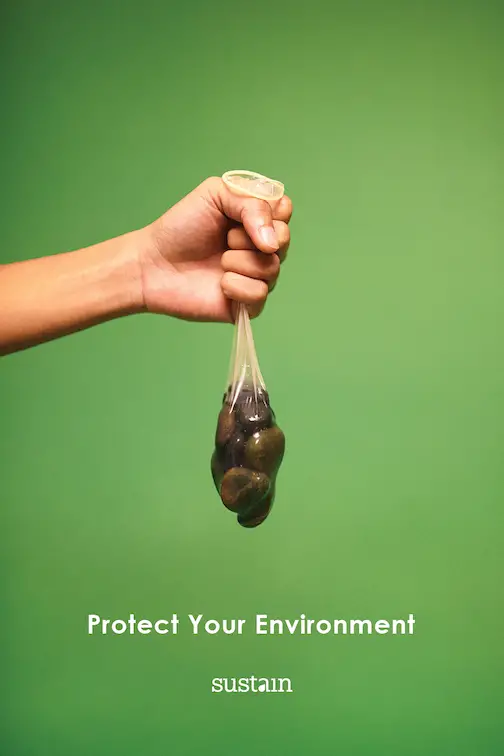Eco-Friendly Condoms: How Green Is Your Protection?
Estimated reading time: 5 minutes
Key Takeaways
- Eco-friendly condoms are designed with sustainability at their core.
- They use biodegradable materials that break down faster than traditional condoms.
- They’re made from natural rubber, lessening their environmental impact.
- The use of non-toxic materials reduces the risk of irritations.
- Brands like Sir Richard’s and GLYDE lead the eco-friendly market in the Philippines.
Table of contents
- Understanding Eco-Friendly Condoms
- Benefits of Using Eco-Friendly Condoms
- Availability and Brands in the Philippines
- The Role of Sexual Health Education in Promoting Eco-Friendly Options
- Challenges and Overcoming Barriers to Adoption
- Innovative Solutions and Future Trends
- Empowerment Through Eco-Friendly Choices
- Conclusion
Understanding Eco-Friendly Condoms
Eco-friendly condoms are revolutionary products designed with sustainability at their core. Unlike traditional condoms, which are primarily composed of latex that can take decades to decompose, eco-friendly alternatives are made from biodegradable materials. These materials allow them to break down more quickly and have a smaller environmental footprint.
Comparing eco-friendly condoms to conventional options, we see distinct differences, especially in production and disposal. Traditional latex condoms often involve processes that emit considerable carbon dioxide and remain in landfills for years. In contrast, the production of eco-friendly condoms typically involves cleaner technologies and materials like natural rubber, which is both sustainable and better for the planet. Environmental Study Link.
The environmental impact of traditional condoms has been well-documented in studies that suggest a significant carbon footprint associated with their lifecycle (Environmental Study Link). This impact has prompted both consumers and manufacturers to turn to greener alternatives.
Benefits of Using Eco-Friendly Condoms
Choosing eco-friendly condoms offers several benefits:
- Reduction in Carbon Footprint: These products contribute less to global emissions, aligning with a sustainable lifestyle.
- Non-toxic Materials: Free from harmful chemicals, they promise a safer experience.
- Enhancement of Sexual Health: The absence of toxic substances can decrease the risk of irritations or allergic reactions. Benefits of sexual health education.
Embracing these products also complements wider sexual health education, which teaches the importance of sustainable living and responsible health practices. Studies have indicated that exposure to chemicals found in some conventional condoms can have long-term health risks, highlighting the importance of chemical-free options (Health Journal Link).
Availability and Brands in the Philippines
In the Philippines, awareness and availability of eco-friendly condom brands are growing. Brands like Sir Richard’s at GLYDE are leading the change, producing condoms that are not only safe for people but also for the planet. These brands uphold sustainable practices, from fair-trade sourcing to using 100% natural materials. Condom brands in Philippines.
The market potential for these products in the Philippines is significant, with a positive consumer response geared towards sustainability and ethical production methods. This shift reflects a broader interest in goods that support not only individual health but also global well-being.
The Role of Sexual Health Education in Promoting Eco-Friendly Options
Effective sexual health education is crucial in promoting the benefits of eco-friendly condoms. Comprehensive programs that incorporate discussions around sustainable living empower individuals to make informed choices about their sexual health, linking it to environmental stewardship. Sexual education in Philippines.
In the Philippines, the integration of sexual education has been shown to enhance knowledge and responsible behavior, with significant implications for both health and the environment (Borgen Project Link).
Challenges and Overcoming Barriers to Adoption
Despite their benefits, eco-friendly condoms face challenges such as stigma, cost differences, and a lack of widespread awareness. To combat these issues, strategies could include government subsidies, targeted awareness campaigns by NGOs, and enriched educational curricula that emphasize the ecological and health benefits of sustainable contraceptive methods.
Innovative Solutions and Future Trends
The landscape of sexual health is embracing technology, ushering in a wave of innovative solutions. Startups are exploring sustainable contraceptive technologies, and apps are being developed to provide confidential advice on sexual health, making eco-friendly options more accessible.
Looking forward, we can anticipate advancements in biodegradable materials and digital strategies that cater to younger, tech-savvy generations who are pivotal in the shift towards sustainability.
Empowerment Through Eco-Friendly Choices
Choosing eco-friendly condoms not only benefits the planet but also empowers individuals. Making environmentally sound choices can enhance self-esteem and personal agency, contributing to a more sustainable and healthy lifestyle. The empowerment derived from these informed choices is supported by data showing increased confidence and proactive health behaviors among those who advocate for sustainable living (Roots of Health Link). Reproductive rights in Philippines.
Conclusion
Eco-friendly condoms represent more than just a niche alternative; they are at the forefront of a holistic approach to sexual and reproductive health that respects both our bodies and our environment. As we continue to move towards a more sustainable future, they offer a promising pathway for aligning our personal values with our actions. Consider the impact of your choices – not just for today, but for the health of our planet and future generations.
Adopting eco-friendly condoms and other sustainable practices are steps forward in a journey that combines responsibility, health, and ecological awareness. Let’s embrace these innovations and advocate for a greener, healthier world.
Frequently Asked Questions
Q: Why are eco-friendly condoms important?
A: Eco-friendly condoms reduce the environmental impact associated with traditional latex condoms by using biodegradable materials and sustainable production methods.
Q: Are eco-friendly condoms as effective as traditional condoms?
A: Yes, eco-friendly condoms are tested for the same safety and efficacy standards as traditional condoms, ensuring reliable protection.








